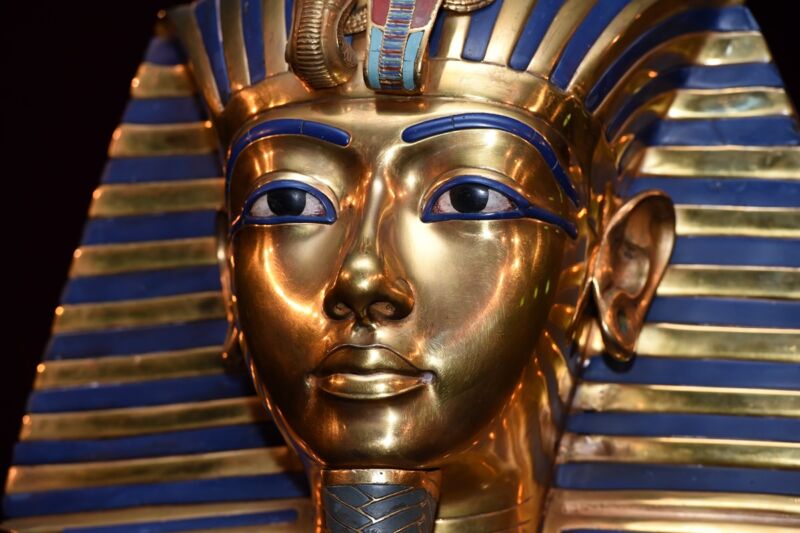
Enlarge / The burial mask of Egyptian pharaoh Tutankhamen recovered from the boy king’s tomb. (credit: Hannes Magerstaedt/Getty Images)
Among the many items recovered from King Tut’s tomb was a dagger made of iron, which is a material that was rarely used during Egypt’s 18th dynasty. That iron likely came from a meteorite, and a recent paper published in the journal Meteorites and Planetary Science sheds further light on precisely how that iron dagger was forged, as well as how it came into Tut’s possession.
Tutankhamen was the son of Akhenaten and ascended to the throne when he was just 8 or 9 years old. He wasn’t considered an especially important pharaoh in the grand scheme of things, but the treasures that were recovered from his tomb in the 1920s are what led to his fame. Those treasures included the famous gold burial mask (pictured above), a solid gold coffin, thrones, archery bows, trumpets, a lotus chalice, and various pieces of furniture.
These became part of a global touring exhibition, which received worldwide press coverage during the 1960s and 1970s in particular. The mummy even inspired a couple of songs: Steve Martin’s hit “King Tut” (which debuted on Saturday Night Live in 1978) and the lesser-known “Dead Egyptian Blues,” by the late folk rock singer Michael Peter Smith (which contains the immortal line, “Your sarcophagus is glowing, but your esophagus is showing”).





